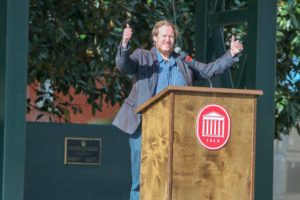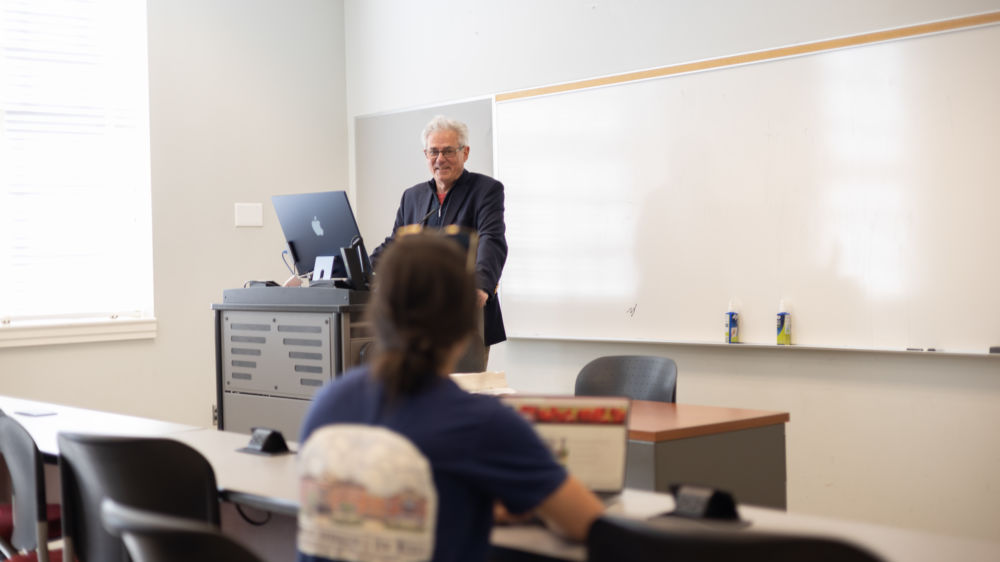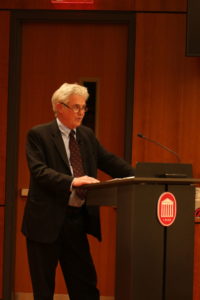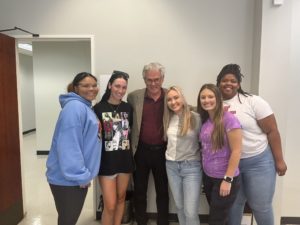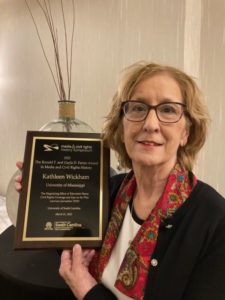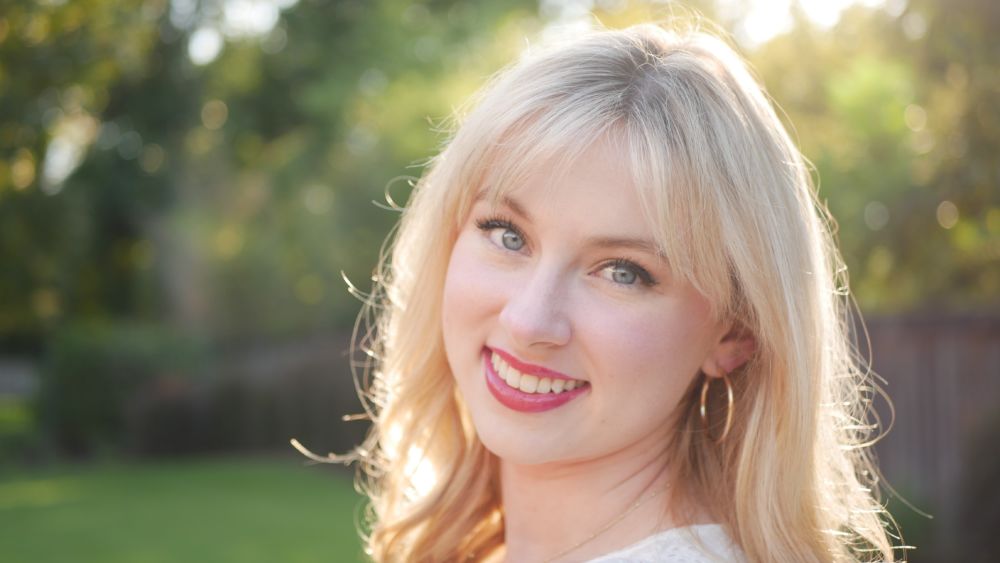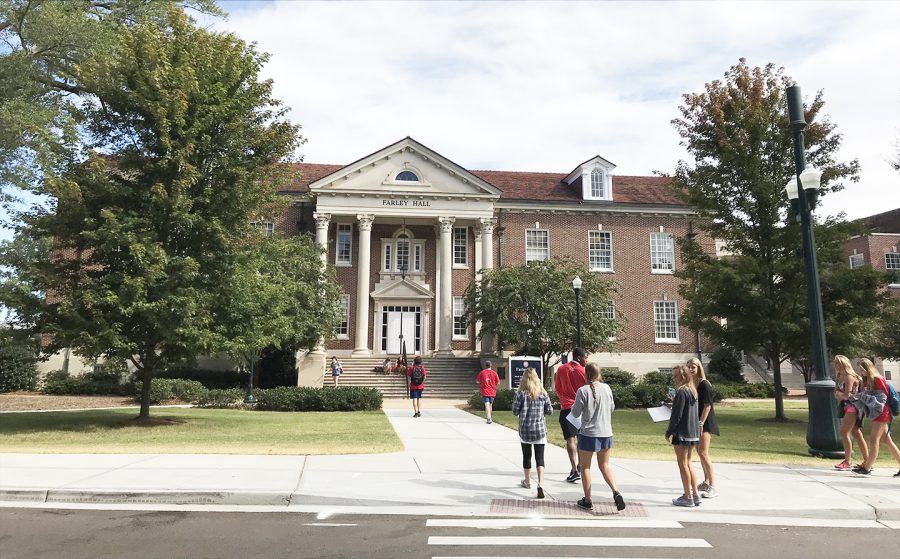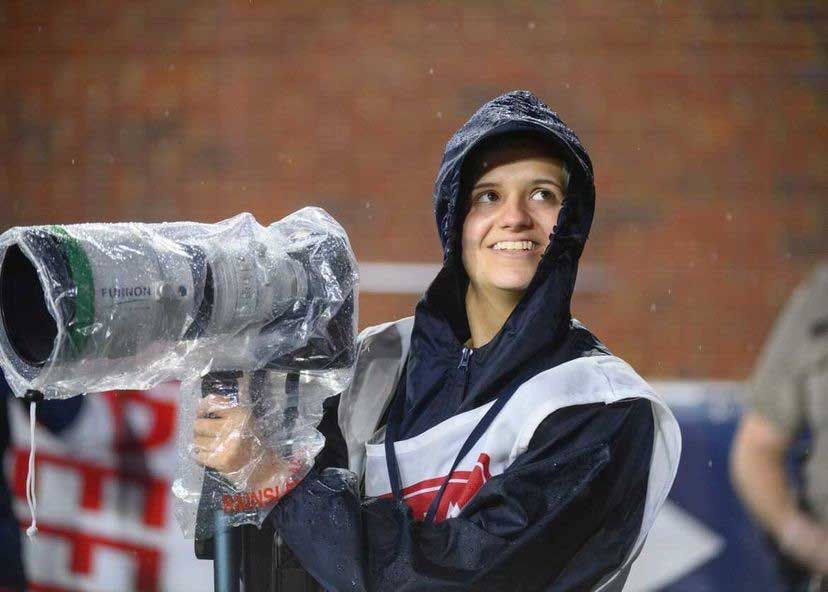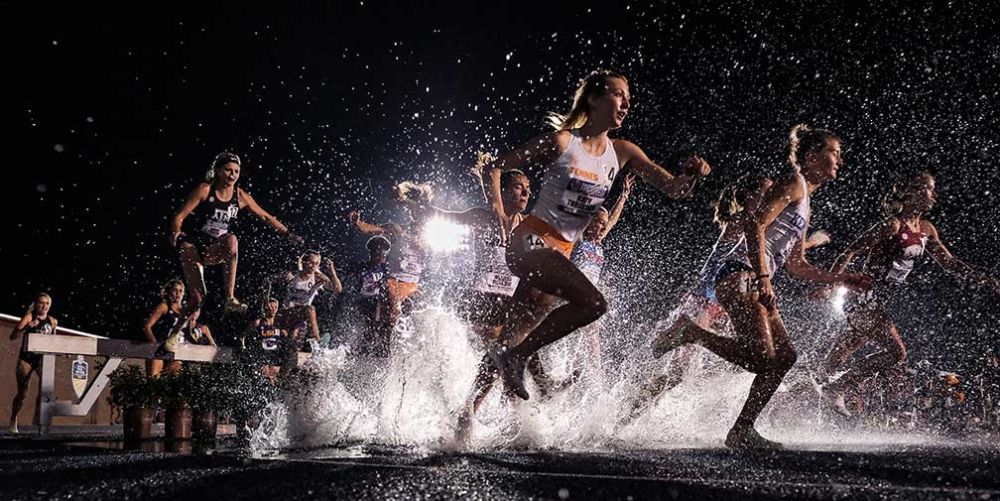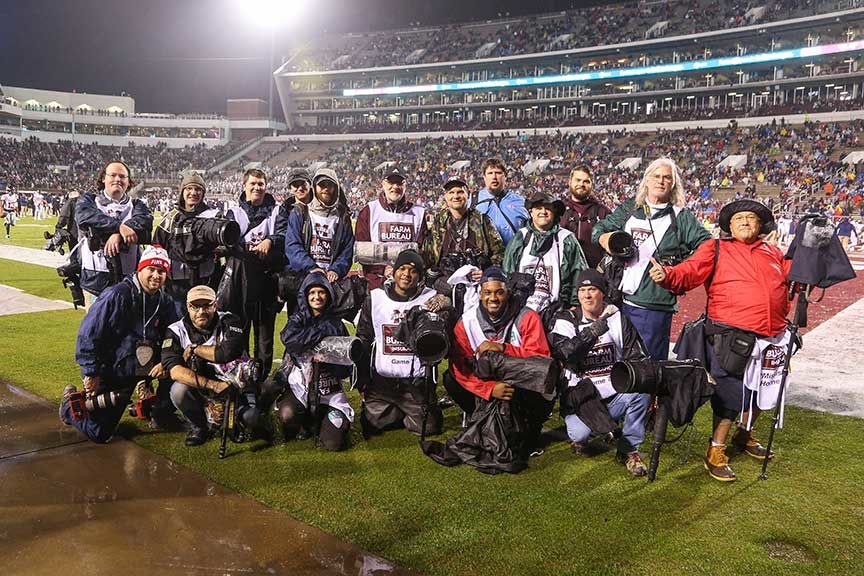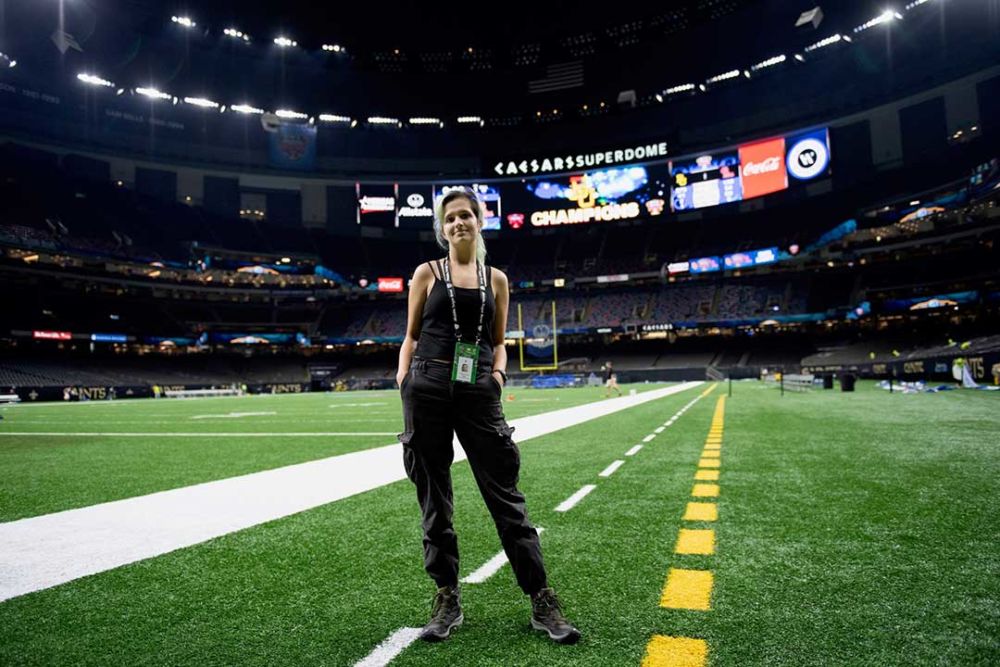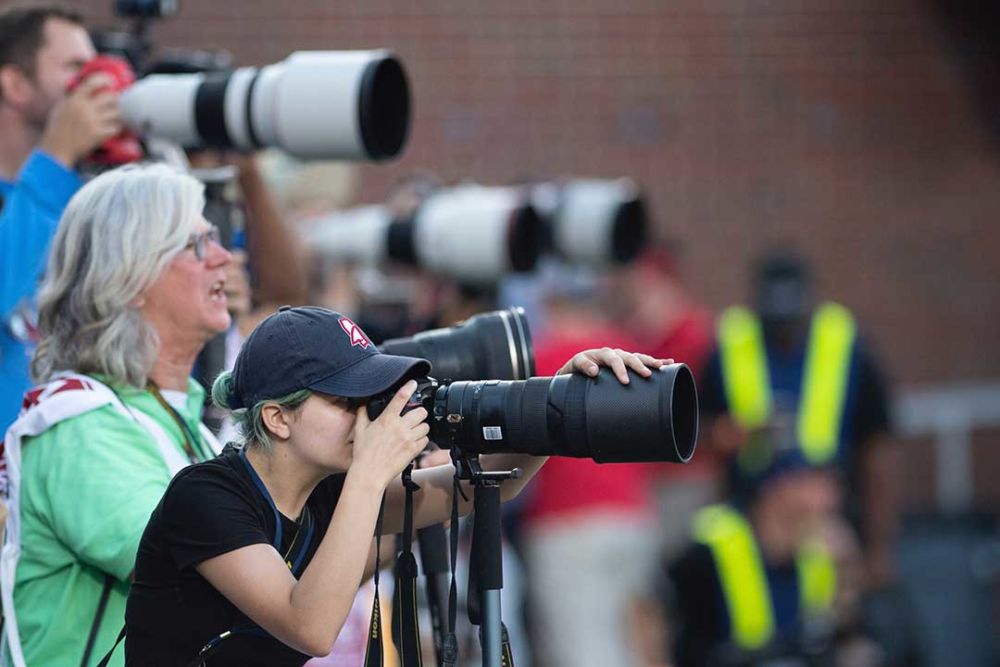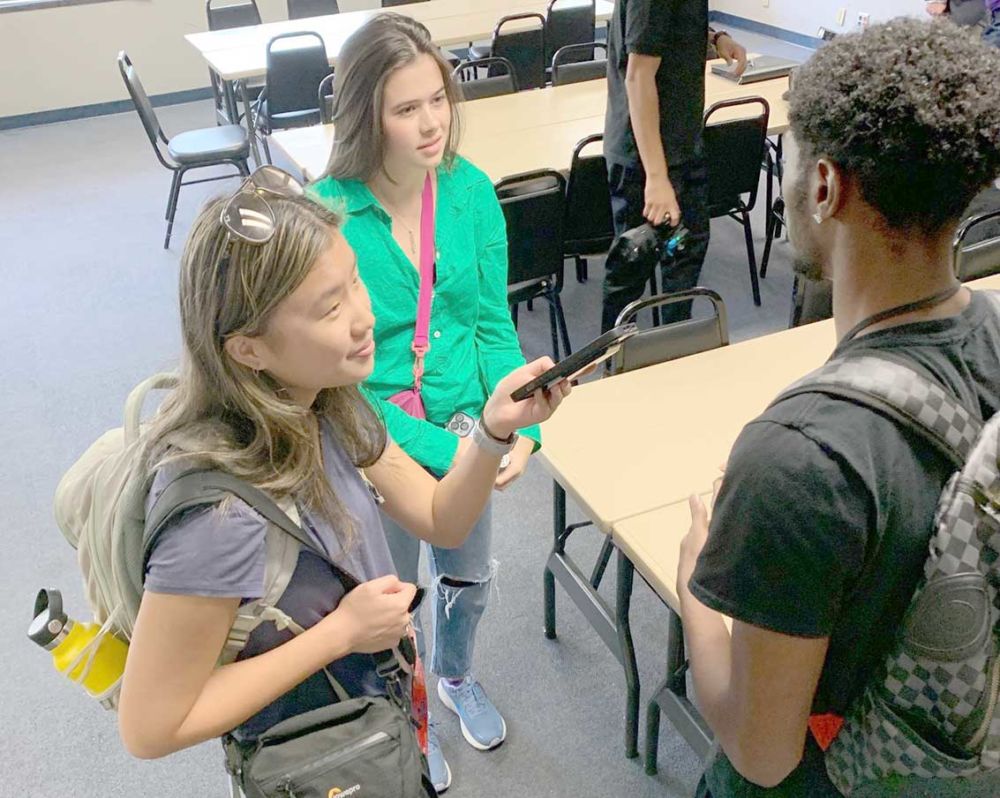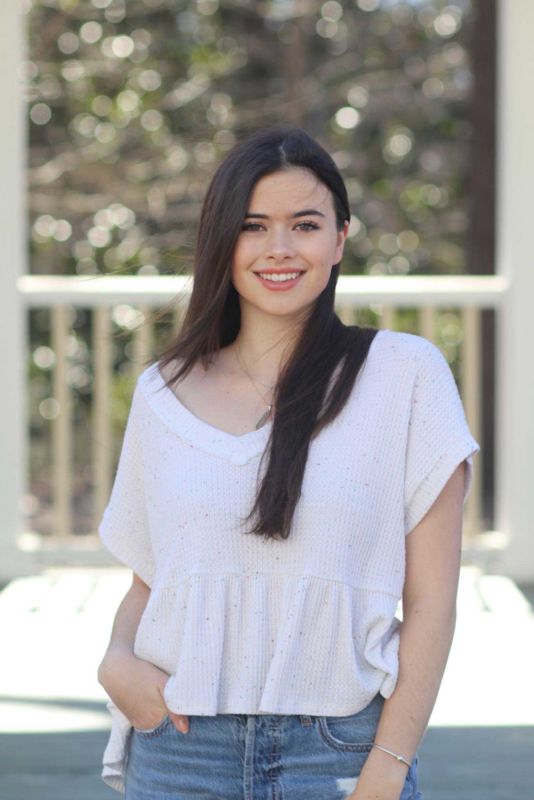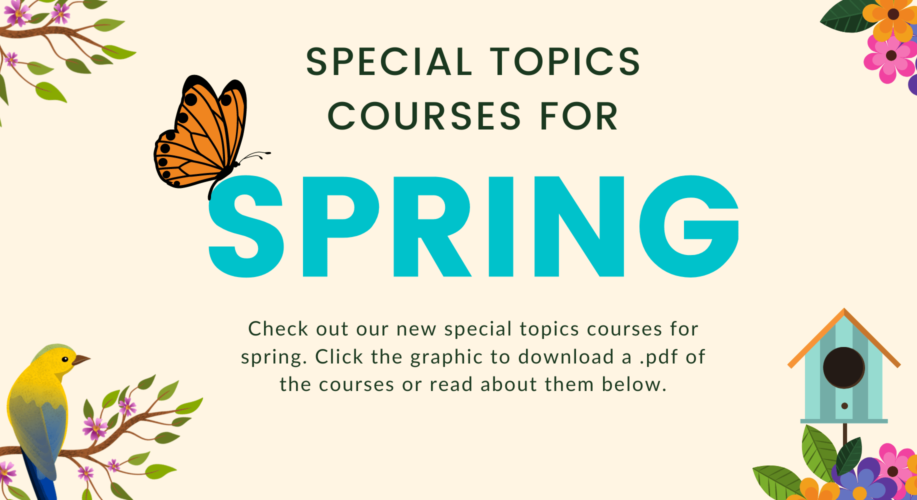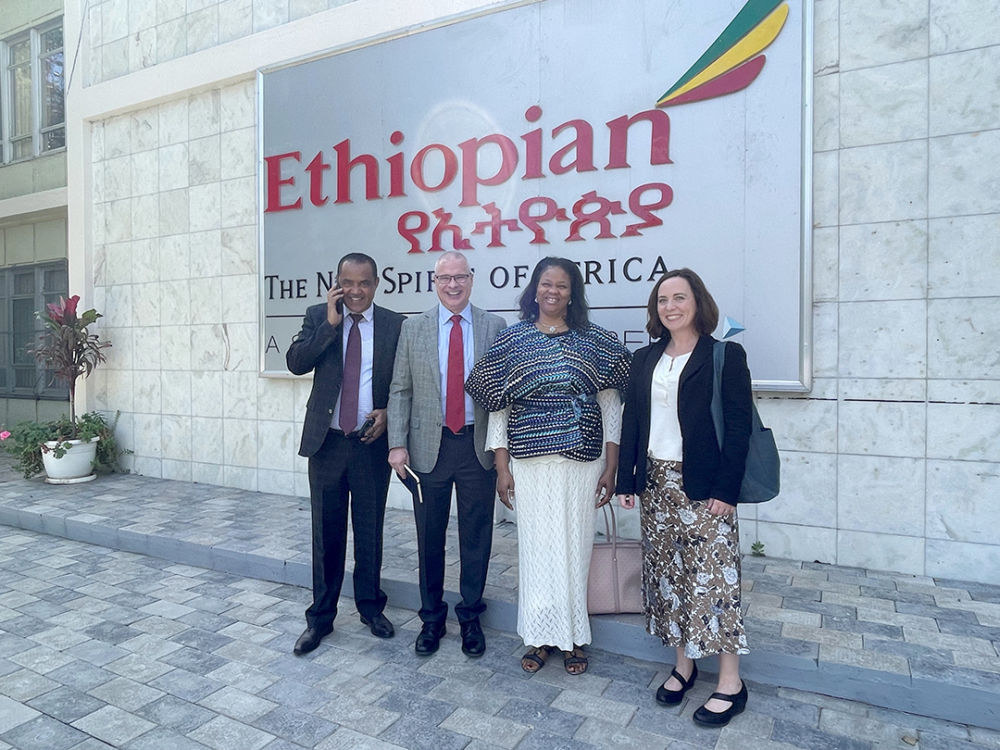
Beyene, Wilkin, Smith and Hickerson.
University of Mississippi School of Journalism and New Media leaders are working to build international relationships by strengthening partnerships with Ethiopia Airlines, meeting with Ethiopian officials, and visiting the University of Namibia.
Four school and university leaders recently traveled to the African countries Ethiopia and Namibia to meet with business and government leaders.
The group included Andrea Hickerson, Ph.D., dean and professor; Marquita Smith, Ed.D., assistant dean for graduate programs and associate professor; Zenebe Beyene, Ph.D., associate professor and coordinator of international programs; and Noel Wilkin, Ph.D., provost and executive vice chancellor for academic affairs.
Beyene said the purpose of the trip was to demonstrate the school’s committed partnership with Ethiopian Airlines and explore other possible collaborations.
“Partnership is like establishing friendship or planting a seed or a tree,” Beyene said. “If you have a very good partnership, it has to be sustained and nurtured with effective communication. And you have to make sure that you are there for a long term, and you are interested in the relationship, not only the business aspect.”
That’s where many institutions fail, he said. They focus exclusively on outcomes.
“Once you establish a strong relationship, like having a strong foundation for a building, you can achieve so many things together,” said Beyene. “Because when you envision a partnership, it’s not only based on your interests and priorities, but it is also based on the interests and priorities of your partners.”
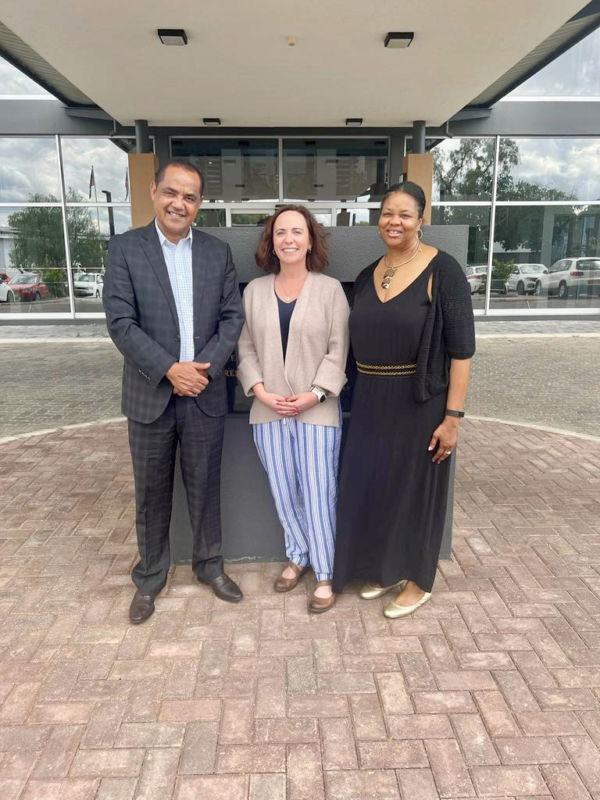
Beyene, Hickerson and Smith.
In 2018, a group of University of Mississippi IMC students traveled to Ethiopia, visited the airline facilities, and created a marketing campaign for Ethiopian Airlines.
“The major focus of this partnership was enrolling employees of Ethiopian Airlines into our regular Master of Arts program or the online program,” Beyene said.
Leaders discovered that Ethiopian Airlines employees were also interested in short-term training.
The UM group also traveled to Namibia, a country in Southern Africa that borders the South Atlantic Ocean between Angola and South Africa, to explore possible collaborations with the country’s leaders and those at the University of Namibia.
Hickerson said one of the trip highlights was touring the Ethiopian Airlines facilities, including its airport and aviation university.
“The logistics of airlines have always impressed me, but here we saw our graduates at work. It was impressive and rewarding,” she said.
“This partnership is just beginning. We have many opportunities for future collaborations with EA, other organizations in Ethiopia, and in Africa more broadly. We are fortunate to have faculty with expertise in the region to facilitate meaningful, long-lasting work.”
While in Africa, school leaders visited the U.S. Embassy in Addis Ababa and held meetings with a U.S. diplomat, the U.S. Agency for International Development, the Centers for Disease Control, and other government agencies in Ethiopia.
This was Wilkin’s first trip to Africa and Ethiopia. He said he was impressed with the welcoming hospitality and commitment Ethiopian Airlines executives have to being an industry leader.
“The training facilities and the extent to which the airline is committed to educating its employees and adapting to the needs of the continent are inspiring,” he said. “They are looking for creating programs or finding partners who can help them to ensure they have a well-qualified workforce.”
Wilkin said it was enjoyable to visit with graduates from the University of Mississippi in their home country.
“To be an industry leader, Ethiopian Airlines recognizes and is committed to provide their employees with the necessary education and abilities,” he said. “This commitment and their commitment to excellence is wonderful and is being recognized by other companies in Ethiopia and throughout Africa.”
Beyene said the group held talks with leaders about strengthening the collaboration with Ethiopian Airlines and other institutions in Ethiopia. He said one of the trip highlights was attending an event organized by the U.S. Embassy that provided information for prospective students. More than 200 students registered for the information session.
Beyene believes one of the University of Mississippi’s priorities is campus internationalization.
“Campus internationalization is an institutional response to globalization,” he said. “What that means is through various programs, projects, entities and departments, the university would increase its reach to the external world having some kind of role in serving humanity in general through providing quality education.
“By bringing in students from around the world, we can increase diversity and enrollment, and we can add value to our program. Our students would learn from our international students. International students greatly benefit from the resources and opportunities here in the university.”
Beyene said one of the university’s missions is to “transform lives, communities and the world by providing opportunities for the people of Mississippi and beyond through excellence in learning, discovery, healthcare and engagement.”
“People have very strong interests in advancing their career to get quality education if you make education affordable and accessible,” he said. “As you know, our university, compared with many, many other universities – we offer quality education at a very reasonable, affordable price. Not many people know this. So we can attract talent from around the world, and then make our institution a better place for everybody.”
Strengthening the relationship with Ethiopian Airlines will help the University of Mississippi extend its reach internationally, Beyene said.
“We can make Ole Miss one of the destinations for global education,” he said. “We can bring the world to Ole Miss and give our students firsthand experience that they cannot find elsewhere.”
This story was written by LaReeca Rucker.
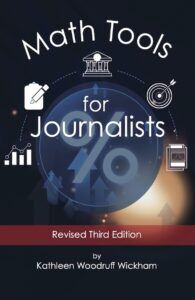 Math Tools for Journalists is designed to improve the math skills of journalists by providing them with formulas written in language they can understand and with drill problems developed with an eye to their on- the-job experiences.
Math Tools for Journalists is designed to improve the math skills of journalists by providing them with formulas written in language they can understand and with drill problems developed with an eye to their on- the-job experiences.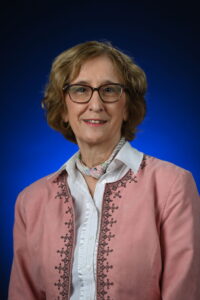 Kathleen W. Wickham is a professor of journalism in the School of Journalism & New Media at the University of Mississippi. Her edited book, James Meredith: Breaking the Barrier, served as the commemorative book for the university’s 60th anniversary events marking Meredith’s integration of the university. She is also the author of We Believed We Were Immortal: Twelve Reporters Who Covered the 1962 Integration Crisis at Ole Miss (2017). In 2022 she was awarded the Ronald T. and Gayla D. Farrar Award in Media & Civil Rights History, for the publication of “The Magnifying Effect of Television News: Civil Rights Coverage and Eyes on the Prize,” published in American Journalism. Her significant campus projects included having the UM campus named a national historic site in journalism by the Society of Professional Journalists in honor of the 300-plus reporters who covered Meredith’s enrollment and the dedication of a memorial bench honoring Agence France-Press reporter Paul Guihard, killed during the subsequent riot. Prior to entering academia, Dr. Wickham worked as a reporter for 10 years in her native New Jersey, ending her reporting career as the Atlantic City bureau chief for the Newark Star-Ledger. For the last 15 years she has served as a judge for the National Headliner Journalism Awards, one of the nation’s oldest journalist contests with categories across all media platforms.
Kathleen W. Wickham is a professor of journalism in the School of Journalism & New Media at the University of Mississippi. Her edited book, James Meredith: Breaking the Barrier, served as the commemorative book for the university’s 60th anniversary events marking Meredith’s integration of the university. She is also the author of We Believed We Were Immortal: Twelve Reporters Who Covered the 1962 Integration Crisis at Ole Miss (2017). In 2022 she was awarded the Ronald T. and Gayla D. Farrar Award in Media & Civil Rights History, for the publication of “The Magnifying Effect of Television News: Civil Rights Coverage and Eyes on the Prize,” published in American Journalism. Her significant campus projects included having the UM campus named a national historic site in journalism by the Society of Professional Journalists in honor of the 300-plus reporters who covered Meredith’s enrollment and the dedication of a memorial bench honoring Agence France-Press reporter Paul Guihard, killed during the subsequent riot. Prior to entering academia, Dr. Wickham worked as a reporter for 10 years in her native New Jersey, ending her reporting career as the Atlantic City bureau chief for the Newark Star-Ledger. For the last 15 years she has served as a judge for the National Headliner Journalism Awards, one of the nation’s oldest journalist contests with categories across all media platforms.
